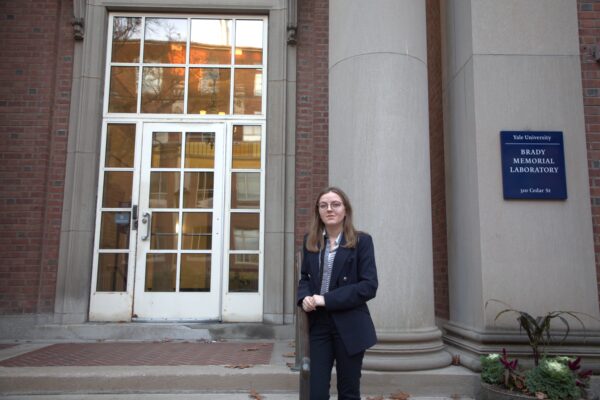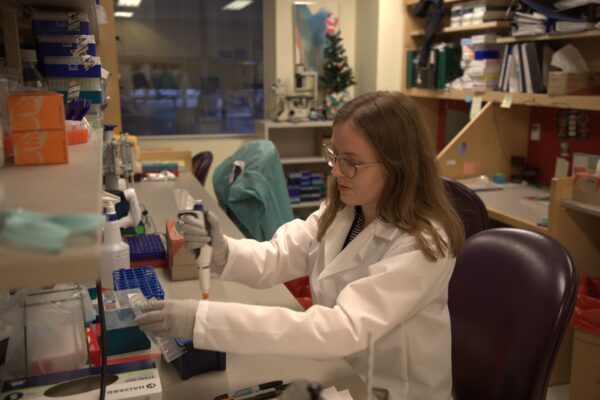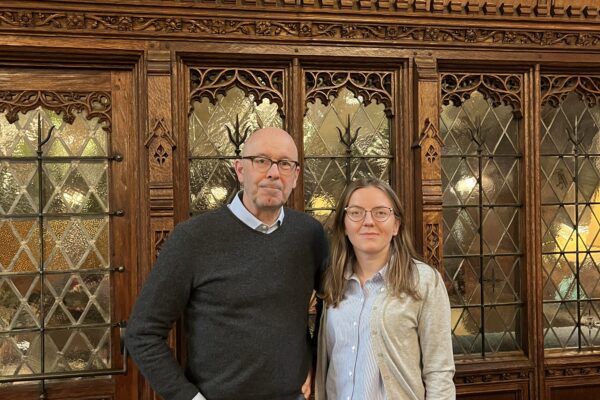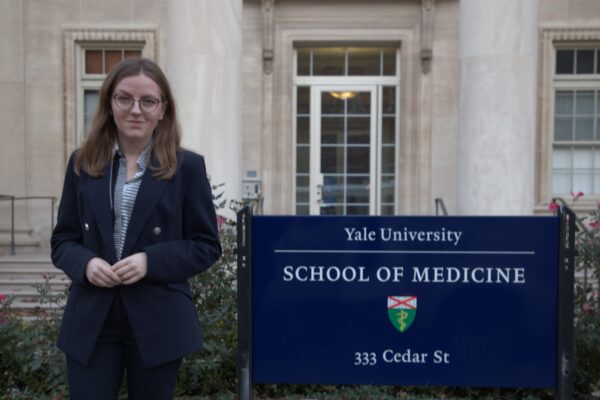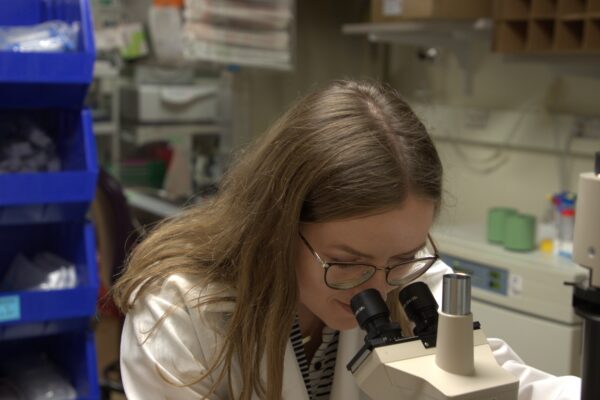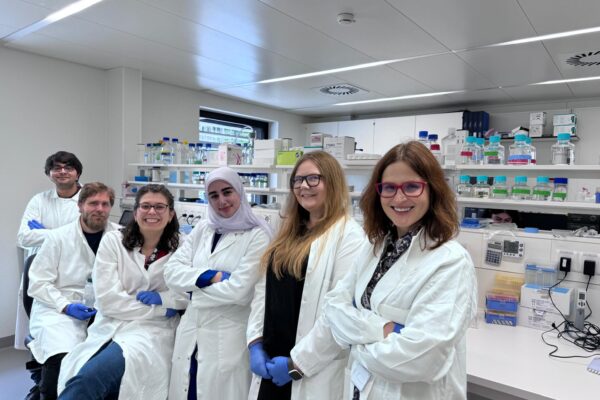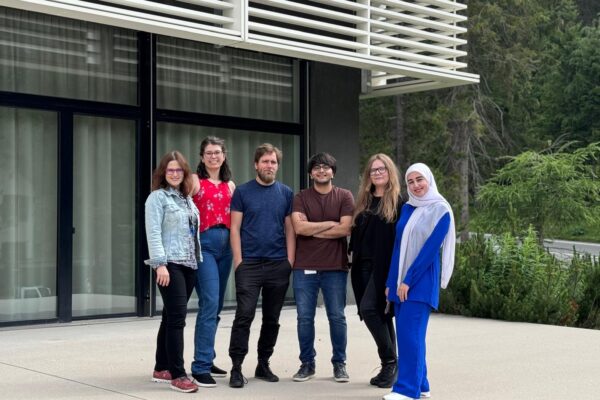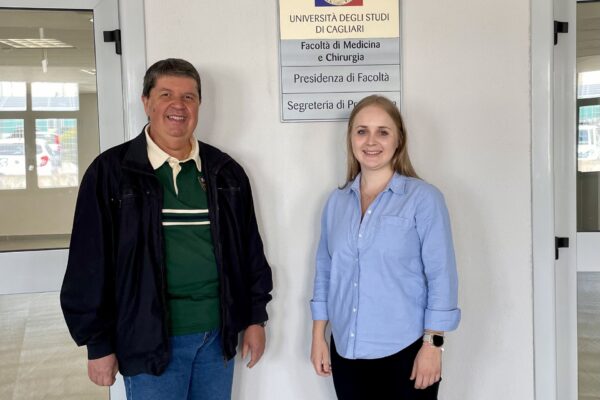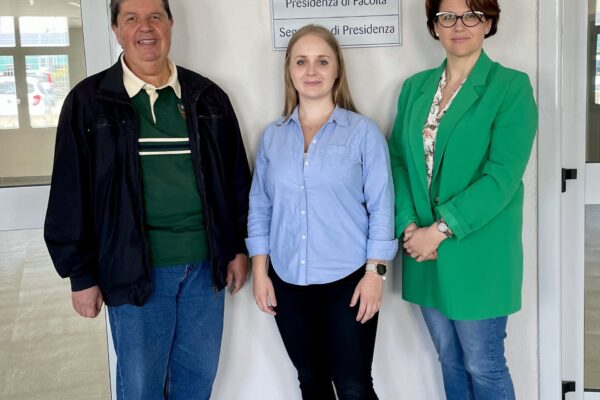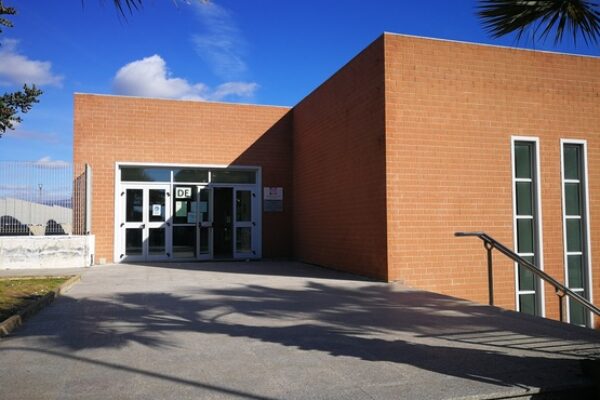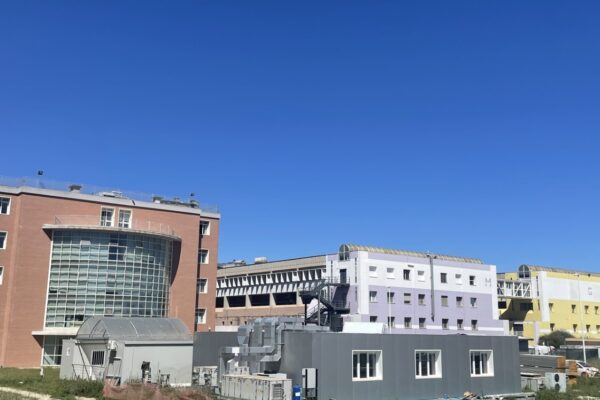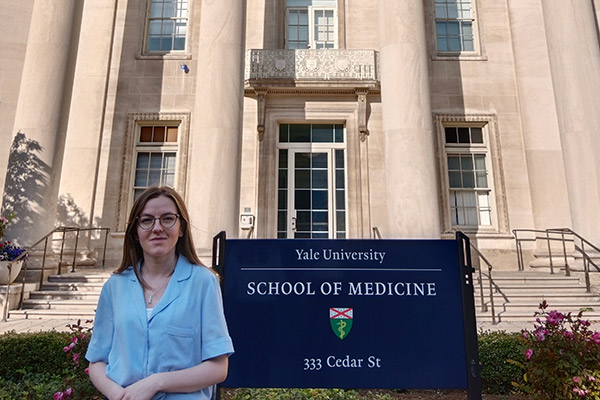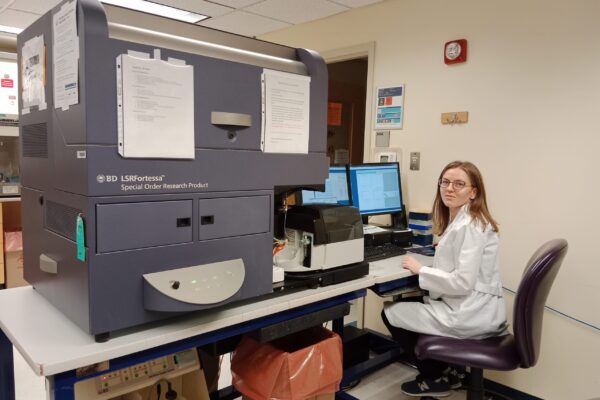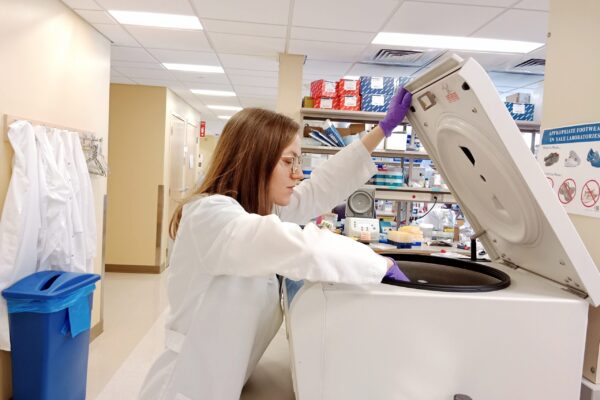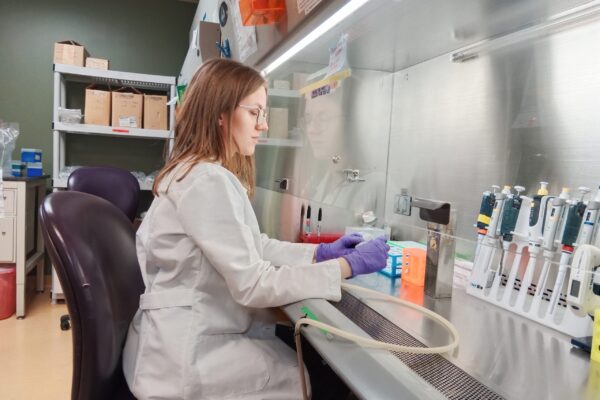Mobility
The aim of the task is to support international mobility for the best Polish and foreign doctoral students studying at the doctoral school, it is the internationalization of the International Doctoral School of the Medical University of Lodz, including increasing the international mobility of doctoral students and increasing the number of doctoral projects carried out in international cooperation.
Reports from trips
Beata Filipek, MD • Yale University School of Medicine | 26.08.2024 – 31.10.2024
In 2024, I completed a research internship at the prestigious Yale University School of Medicine, New Haven, US. For over two months, I conducted research in Professor Kevin O’Connor’s laboratory, who is also the second supervisor of my doctoral dissertation. During the internship, I studied the properties of autoantibodies against the acetylcholine receptor in patients with myasthenia gravis. During my stay, I acquired specialist knowledge in the field of advanced laboratory techniques used in research on autoimmune diseases, with particular emphasis on neurological diseases. This research contributed to a broader understanding of the pathology of myasthenia gravis and obtained results are currently being published in a scientific journal with a high Impact Factor. The findings of conducted experiments will also be presented during next year's scientific conference “15th MGFA International Conference on Myasthenia and Related Disorders”. This year's research internship and the previous stay at a foreign academic center were possible thanks to the support of PhD student mobility as part of the NAWA STER project. The research trip enabled me to establish international cooperation, learn advanced research techniques, improve my scientific skills, and had a positive impact on the preparation of my doctoral dissertation.
Alaa Sheri, MD • Swiss Institute of Allergy and Asthma Research (SIAF) | 01.07.2024 – 30.09.2024
During my second year of PhD studies my professors-Prof. Anna Lewandowska-Polak and Prof. Joanna Makowska – advised me to plan a research trip to a high-ranking research institute, and suggested a collaborator called the “Swiss Institute of Allergy and Asthma Research (SIAF)”. I gave my consent without even realizing that it would be the beginning of a major scientific upgrade in my career. I planned a 6-month research visit to SIAF as a collaborator institute, and Professor Milena Sokolowska, the head of Immune metabolism department, was appointed as my co-supervisor.
When I came to SIAF, I was shocked by the prestigious research standards and escalating learning curve. Progress reports for doctoral students were conducted each Tuesday, while Immunology courses were conducted each Monday, and everyone had to participate in them even if they were visitors. During my first meeting with Professor Sokolowska, she told me the following: “Your PhD is the most important part of your career because no matter where you go, you will always be asked about it.” The first part of my trip was an extensive editing and amending my research plan and methodology to involve inhouse and up-to-date methods. I was offered introductions to “Biomarker testing”, SCENITH, Multi-Omics methods and CyTof (mass cytometry). Accordingly, my research plan was amended to meet high standard research.
In the following two months, I had intensive training on different stages of research, I was trained on different methods like PCR, western blots, ALI cultures, and flow cytometry. In the meantime, I was constructing my CyTof antibody conjugated panel. Moreover, I had introductions to Data analysis and interpretation of raw data with the Immune Metabolism group.
The best part about this trip was working with an international research group from different countries and origin, where we share during our weekly Thursday meeting different ideas, results and suggestion to perfect our research methodology. I had the privilege also to participate in 2 International projects that are currently going on as a member of the Immunology Metabolism group. Seminars and symposiums also were part of my schedule, where I presented a poster in the Epithelial cell Biology summer symposium hosted by SIAF and in partnership with the European Academy of Allergy and Clinical Immunology (EAACI). In addition I had the chance to attend two seminars both at the University of Zurich and Davos Medical campus.
The rest of my trip will be optimizing and running my CyTof panel as part of my thesis, where the bulk of my research projects depends on the CyTof model to provide high dimensional immune phenotyping. And we aim on publishing the results in high impact factor journals.
I am grateful to my professors for this opportunity and to the International Doctoral School for providing me with the NAWA-STER mobility scholarship to complete my research trip. This program co-finances international research trips and helps empowering doctoral students to pursue the best quality of research and training.
Natalia Płóciennik, MSc • University of Cagliari (Italy) | 16.03.2024 – 18.04.2024
In the spring of this year (2024), I had a month-long stay at the University of Cagliari (Italy) in the Department of Medical Sciences and Public Health, the place of work of my supervisor-Prof. Paolo Contu. My stay was made possible with the support of international mobility through the NAWA STER project. The purpose of my visit was interdisciplinary collaboration on a scientific article. Through joint work and lively discussions, we took steps towards our goal. During my stay, I actively participated in a number of research activities: literature review, preparation of the matrix necessary for the analysis of scientific articles, engaged in regular meetings and joint discussions with colleagues, exchanging experiences gained in different settings to gain insights into the multifaceted nature of irritable bowel syndrome, which is in my area of scientific interest.
Through our joint efforts, we have gained valuable information on the role of manual therapy in the treatment of IBS. Although research is ongoing, preliminary findings suggest that manual therapy interventions can help to alleviate symptoms and improve the overall wellbeing of people with IBS. Furthermore, our interdisciplinary approach has highlighted the importance of addressing the biopsychosocial aspects of IBS and tailoring interventions to individual patient needs.
My month-long visit to the University of Cagliari was an enriching and rewarding experience, both professionally and personally. Working with experts from different fields such as public health, gastroenterology or physiotherapy provided me with a holistic perspective and highlighted the importance of interdisciplinary teamwork in healthcare research.
I am grateful for the opportunity to work with a talented and experienced team, it was inspiring to see the commitment and passion of each team member towards a common goal. The collaborative atmosphere encouraged open communication and exchange of ideas, creating a dynamic and productive research environment.
My time at University of Cagliari allowed me to gain hands-on experience in data collection and analysis, which is the next step in honing my research skills.
I am grateful for the support and mentorship I have received and, looking ahead, I look forward to continuing our collaboration.
Beata Filipek, MD • Yale University School of Medicine | 01.05.2023 – 31.10.2023
Since May 2023 I have been participating in a research internship in the USA within the STER program entitled Internationalization empowerment of Doctoral School at Medical University of Lodz (InterEmpowereD)” financed by the Polish National Agency for Academic Exchange.
The supervisors of my doctoral dissertation are prof. dr hab. n. biol. Tomasz Popławski from the Department of Microbiology and Pharmaceutical Biochemistry Medical University of Lodz and Professor Kevin O’Connor from Yale University School of Medicine, USA.
In the laboratory of Professor Kevin O’Connor Department of Neurology Yale University School of Medicine, I am implementing a research project aimed at studying pathomechanisms associated with the occurrence of demyelinating diseases: myelin oligodendrocyte glycoprotein antibody disease (MOGAD) and neuromyelitis optica (NMO). I am testing and characterizing autoantibodies in patients’ serum using advanced molecular biology techniques.
The effect of my current scientific cooperation with mentioned above research center is a publication “MOGAD patient autoantibodies induce complement, phagocytosis, and cellular cytotoxicity” JCI insight IF 9,496.

